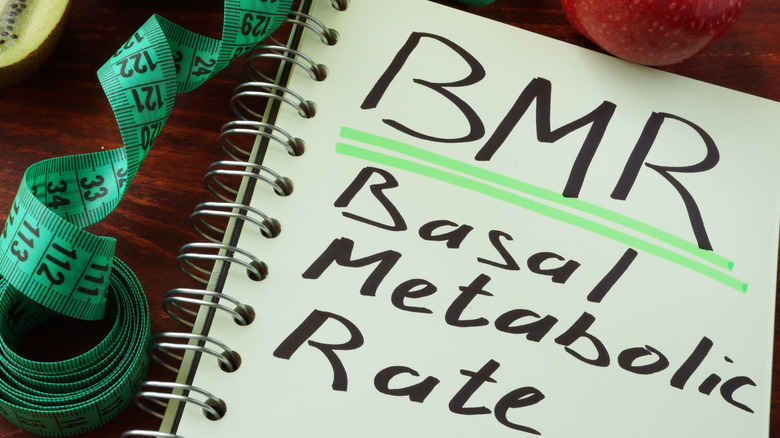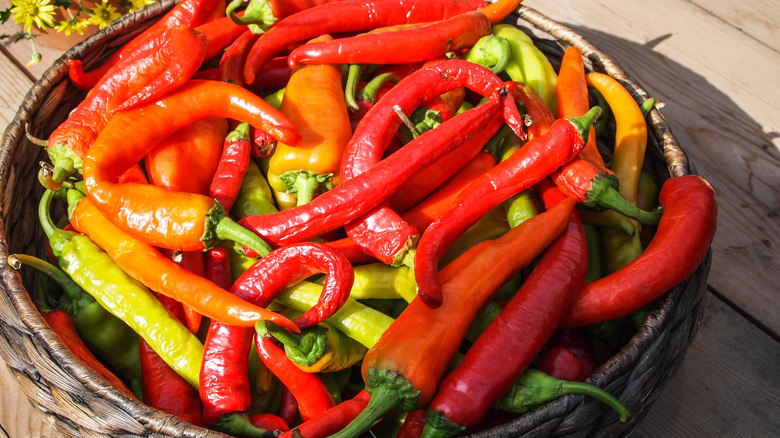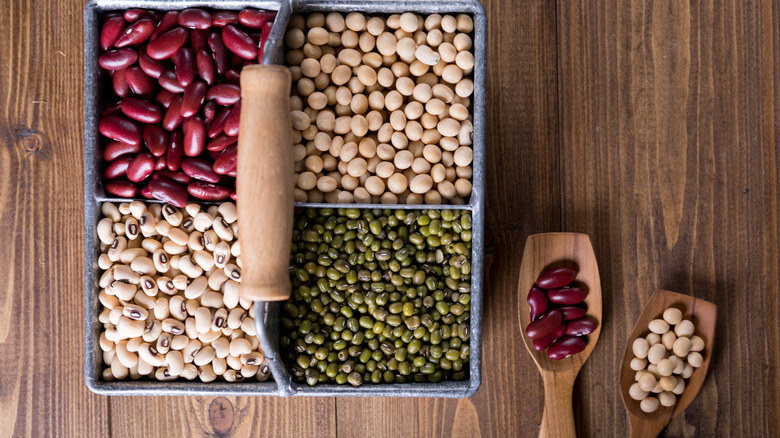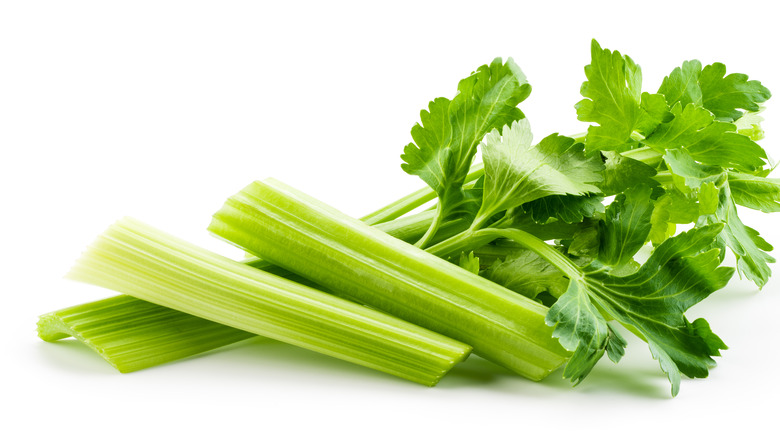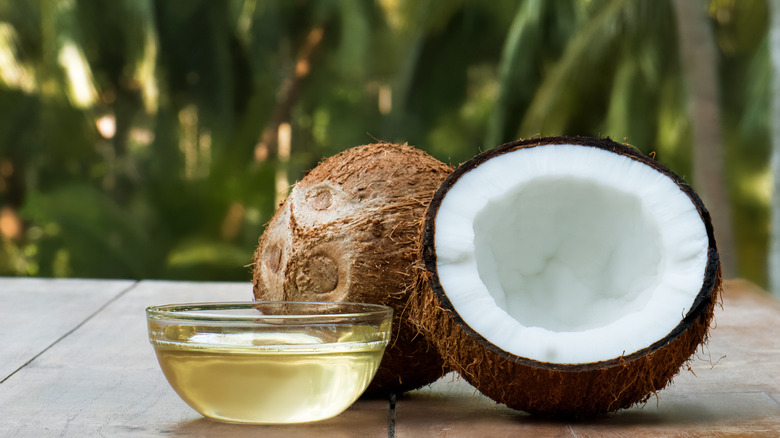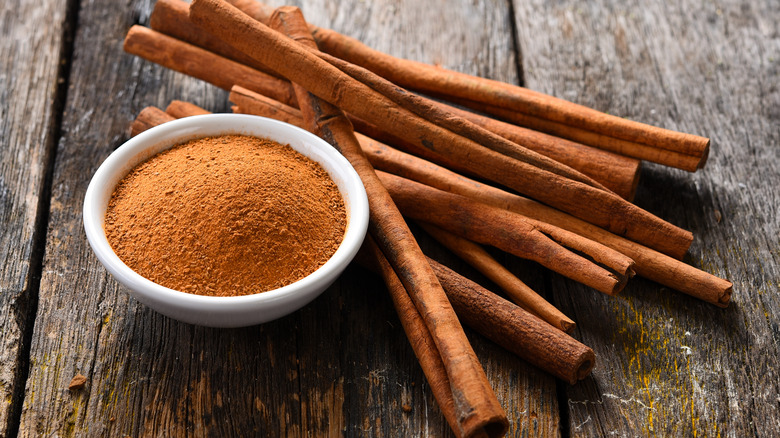Incredible Metabolism-Boosting Foods And Beverages
As a registered dietitian who started her career working primarily with weight management, I know losing weight is hard. I also have some personal experience with trying to lose weight, as I recently had to work really hard at losing the ten pounds of post-baby weight I acquired after the birth of my first son. You would think that I would know a ton of secrets that would make shedding those extra pounds easy, but my body works the same as everyone else's, I needed to burn more calories than I was consuming.
But, I do know some secrets to get my body burning a few extra calories daily by including a few special foods that can speed up metabolism a bit. Keep in mind, none of these foods are miracles, they won't help you lose ten pounds overnight, but adding them in can give you a little extra boost to make weight loss a little easier.
What is metabolism?
Metabolism is simply a collection of chemical processes in the body that allows for us to stay alive, grow, repair our bodies, and reproduce. All of these bodily functions, called the basal metabolic rate, require calories from food. Exactly how many calories depends on our age, sex, and size. But, regardless of what people may lead you to believe, you don't actually have a huge amount of control over the speed of your metabolism because most of the energy burned is by innate functions such as breathing, thinking, making hormones, repairing cells, or making the heart beat. There is no real way to change how many calories our bodies are using for those processes.
The part of the metabolism we have the most control over is how much we burn through physical activity, but there are also limits to how much exercise you can do in one day without becoming physically exhausted.
The final piece that makes up the metabolism is called the thermic effect of food or how many calories it takes to digest a specific food. Eating foods that take a lot of calories to digest or have special metabolism "boosting" qualities once digested, can help you tap into this slight calorie-burning boost. Although I wish I could say there was a food that you could eat in unlimited quantities to speed up your metabolism, that is not the case. But, here are eight of my favorites that can provide a slight boost when added to the diet.
Water
Drinking enough water is one of the most important aspects of maintaining a healthy body and a healthy metabolism. Without enough water, your body simply cannot burn calories properly. A 2003 study in the Journal of Clinical Endocrinology and Metabolism found that drinking around 16 ounces of water sped up metabolism by 30 percent within ten minutes of consumption and metabolism remained elevated for about 40 minutes. Based on the results of this study, researchers concluded that drinking the recommended eight glasses of water daily would result in an additional 100 calories burned a day.
Although this may not seem like much, burning an additional 100 calories per day could result in a 12 pound weight loss over a one year period, without making any other changes. So, be sure you are drinking at least eight glasses a day to keep your metabolism working smoothly.
Coffee
Coffee sometimes gets a bad reputation, but starting your day with it can actually boost metabolism. The metabolism boosting effect is likely related to the caffeine in coffee, therefore a similar response may occur with other caffeine-containing foods.
A study of 20 women in the American Journal of Physiology – Endocrinology and Metabolism, sought to determine the 24-hour effect of coffee on metabolism and fat burning. Researchers determined that metabolism increased more after drinking coffee in lean women when compared to obese women, but it did increase in both groups. The lean women also maintained the boost in their metabolism overnight. Both groups of women experienced a significant increase in fat burning over the 24-hour period.
A cup or two of coffee does seem to slightly increase metabolism, but the tolerance of caffeine can vary greatly from person to person. Don't try to drink tons more coffee just for the metabolism boost, especially because too much caffeine can lead to anxiety, high blood pressure, and other health problems.
Spicy food
Spicy food, particularly spicy peppers, are known metabolism-boosters. Peppers contain a compound called capsaicin that works by increasing body temperature and therefore boosts metabolism. It also can increase feeling of fullness after a meal so you eat less all day, making it easier to cut calories.
A 2013 study found that 2.56mg of capsaicin increased metabolism by 20.5 percent and also promoted fat burning. The only issue with this research is that 2.56 mg in a meal is way more than most people can tolerate in terms of spiciness, even if you like spicy food. Eating spicy food can also cause heartburn in those that are sensitive to it.
But don't discount it completely, you can still benefit from a small amount — add a little spice to your diet or consider trying different cultural foods that utilize hot peppers, such as Mexican or Indian food.
Milk
You may be surprised to see milk on this list, but cow's milk actually has many components that can help increase fat burning and speed up metabolism. The first metabolism boosting secret of milk comes from the calcium content that has been shown to help the body burn fat more efficiently. Research suggests that adequate intake of calcium can reduce the risk of obesity by up to 70 percent.
The type of fat and protein found in milk can also help boost metabolism. Whole milk contains primarily medium chain fatty acids, a type of fat that has been shown to increase metabolism and is easily burned off as energy, instead of being stored as fat. These fats can also improve sensitivity to insulin, helping the body use carbohydrates more efficiently instead of storing them as fat. Whey, one of the proteins found in milk, is made up of mostly branched-chain amino acids, which have also been shown to improve metabolism and insulin sensitivity.
Many people don't tolerate cow's milk due to lactose intolerance, but you can still get calcium from milk alternatives like almond milk. Coconut oil, which we will discuss later, is also high in medium chain fatty acids that can boost metabolism. Lastly, you can also use a whey based protein powder for an increase in those specific metabolism-boosting proteins.
Beans
Beans are amazing for metabolism due to the type of carbohydrates they contain. The secret is a type of fiber called resistant starch that is not able to be digested in the small intestine, therefore it moves into the large intestine intact. Once it reaches the large intestine it is fermented by bacteria in the colon, a process that has been shown to increase metabolism, improve insulin sensitivity, and increase satiety. It may also help reduce fat storage.
Other foods that are high in this type of starch are green bananas, other legumes, nuts, seeds, and oats. Including some of these foods in your diet may help give your metabolism a bit of a boost, helping to keep it running at its best.
Celery
You may have heard that celery has "negative" calories, meaning it takes more calories to digest it than it actually contains. This is why celery has maintained its status as a popular diet food for a long time. But, it is not completely accurate that celery has negative calories. A stalk of celery has about ten calories and it takes around two to digest it. Not quite negative, but definitely heading in the right direction.
The benefit of eating celery in terms of metabolism is likely related the high water content. As we previously discussed, getting enough water daily helps boost metabolism. High water fruits and vegetables, like celery, are a great way to add an extra boost of hydration to your day. Other fruits and vegetable high in water content include grapefruit, watermelon, and cucumber.
Coconut oil
Coconut oil has taken a beating in the nutrition world over last few years, one minute it is the healthiest food in the world, then next it is the one food that you need to stop eating immediately. As with most foods, the answer likely lies somewhere in the middle. Regardless of where it stands in the health world today, the type of fat in coconut oil has been shown to speed up metabolism. The medium chain fatty acids in coconut oil are more readily utilized for energy, instead of being stored as fat. When the body uses any nutrient for energy, it is burning calories and speeding up metabolism.
If you want to harness the metabolism boost of coconut oil, use it as a cooking fat, particularly when cooking at higher temperatures. But, more is not always better when it comes to fats since they do have a lot of calories. A teaspoon or two is likely more than enough for most cooking purposes and to give you the metabolic boost you are looking for.
Cinnamon
Cinnamon is not only a delicious spice, it also has been shown to have benefits for helping boost metabolism. Cinnamon affects metabolism through its effect on improving insulin sensitivity. In a study by the American Diabetes Association cinnamon was found to significantly decrease fasting blood sugar by up to 30 percent after 40 days. Lower blood sugar levels show that the body is using sugar from food more effectively instead of storing it as fat, a sign of improved metabolism.
If you want to add cinnamon to your diet, consider adding it your morning coffee for a double metabolism booster and great flavor. Or look for dishes that include cinnamon as a main ingredient, Moroccan cuisine is known for using cinnamon as a spice.

